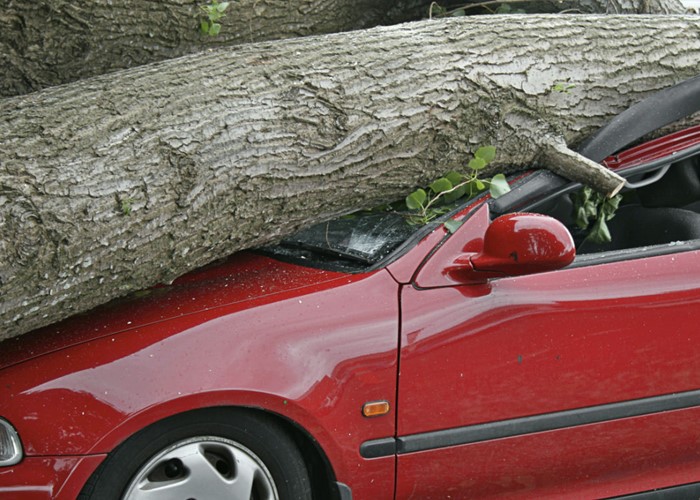Can insuring your excess cut your car insurance premium?

A new partnership reckons some drivers can slash the cost of their car insurance by also insuring the excess on their policy. We take a closer look.
The trials and tribulations of young drivers are well documented. Those aged between 17 and 20 can be charged thousands of pounds for car insurance, in some cases more than the car is even worth.
One way to reduce a car insurance premium – whatever your age – is to increase the 'excess' you’d have to pay in the event of a claim. But that potentially leaves drivers with a massive bill if they have an accident.
Bought By Many, in partnership with the XS Cover Company, says the answer is to buy separate excess insurance.
What’s the excess?
An excess is a sum of money your insurance company requires you to pay towards the cost of making a claim.
When you buy car insurance the excess is usually split into two parts:
- The compulsory excess. This is non-negotiable and depends on your age, the type of car you have and the type of claim.
- The voluntary excess. You choose this yourself.
Choosing a higher voluntary excess will help bring down the cost of your car insurance premium because the insurer won't have to pay out so much in the event of a claim.
However, it means you’ll have to put your hand in your pocket if you have an accident. For young drivers at university or on entry-level salaries paying this amount – normally up to £750 – can be a struggle.
Insuring the excess
Bought By Many allows drivers to increase their excess to as much as £2,000 with an insurer to reduce costs, but offset the risk of having to pay this amount by insuring it with the XS Cover Company instead.
It says young drivers can save hundreds of pounds this way.
The table below outlines example savings based on a 19-year-old student who’s been driving for one year and is insuring a 1-litre Vauxhall Corsa.
|
Insurer |
Compulsory excess |
Cost of insurance with £250 |
Cost of insurance with £750 voluntary excess |
Difference |
Cost of insuring total excess |
Saving |
|
Admiral |
£250 |
£2,628 |
£2,353 |
£275 |
£40 |
£235 |
|
Elephant.co.uk |
£250 |
£2,683 |
£2,400 |
£283 |
£40 |
£243 |
|
Co-op |
£400 |
£3,259 |
£2,824 |
£436 |
£40 |
£396 |
Table: Brought By Many
As you can see some young drivers will be able to save almost £400 this way.
Potential pitfalls
Insuring the excess could potentially save young drivers several hundred pounds, but there are a couple of possible downsides.
Firstly, if you need to make a claim on your car insurance, you’ll need to pay your excess as normal, but then claim it back through your excess car insurance provider.
Secondly, you’ll have to make two claims, rather than one.
Why are young drivers charged so much anyway?
According to the Association of British Insurers (ABI), drivers under 25 pay an average of nearly £2,000 in insurance each year. Up until the EU gender directive came into force last December, young men were typically charged even more than this.
Statistically young drivers have more accidents than everyone else, male drivers in particular. And if you’ve ever watched BBC3’s Barely Legal Drivers you can see why – youth and inexperience can be a fatal combination.
Who are these companies?
Bought By Many helps people club together into social buying groups to get a better deal on insurance – the more people who buy, the cheaper it becomes.
Excess cover for young drivers is just one of the groups it puts together. Others include travel insurance for over 65s, home insurance in flood risk areas, and horse riding insurance for children.
The XS Cover Company does as the name suggests: covers the excess on various types of insurance policies. It only sells through brokers, not directly to people like you and me, hence the partnership with Bought By Many.
Other options for young drivers
Excess insurance is the latest in several initiatives which aim to reduce the cost of insurance for young drivers.
A popular concept is telematics or “black box” technology. Now offered by several insurers, this involves fitting a black box in the young driver’s car which monitors how fast and safely they drive and at what time of day. The better the driver you are, the lower your insurance. Read How a black box can cut the cost of your car insurance.
Similarly, Aviva has launched a smartphone app which tracks your driving habits and can help cut your car insurance bill. Check out Aviva Drive car insurance app reviewed for more.
More on car insurance:
Aviva Drive car insurance app reviewed
How a black box can cut the cost of your car insurance
Comments
Be the first to comment
Do you want to comment on this article? You need to be signed in for this feature